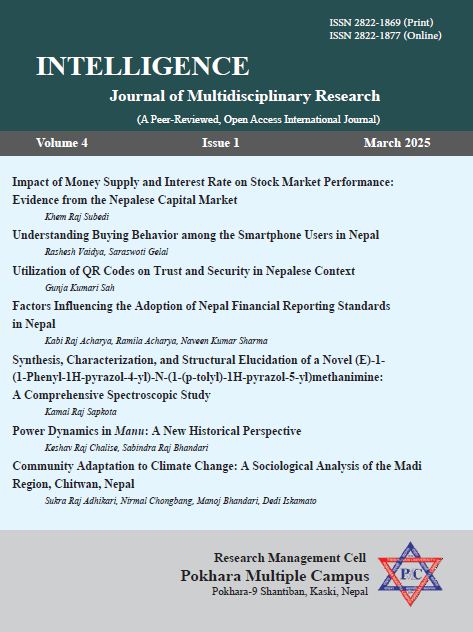Utilization of QR Codes on Trust and Security in Nepalese Context
DOI:
https://doi.org/10.3126/ijmr.v4i1.76930Keywords:
QR Code, Effectiveness, Customer satisfaction, Security and TrustAbstract
This study aims to analyze the use of QR codes for trust and security in the Nepalese context. Koshi, Madhesh, Bagmati, Gandaki, Lumbini, Karnali, and Sudurpaschim are among the seven province clusters into which the study's population is divided using the cluster sampling probability sample technique. A standardized questionnaire was utilized in physical and online surveys to collect data from 208 respondents. The study's findings indicated that employing QR codes made participants feel completely trusted and safe. The study notes that despite the progress, there are still enduring security and trust issues that could prevent QR codes from being widely used if they are not addressed. They feel better at ease utilizing technology in various sectors, such as banking, education, marketing, travel and tourism, hotel and dining, and health. This also helps explain the differences in the monthly percentage of mobile payments made using QR codes by province, gender, age, job, and educational attainment. The study will concentrate on preserving security, building trust, and enhancing user education in several areas before the widespread adoption of QR code services for long-term use.




